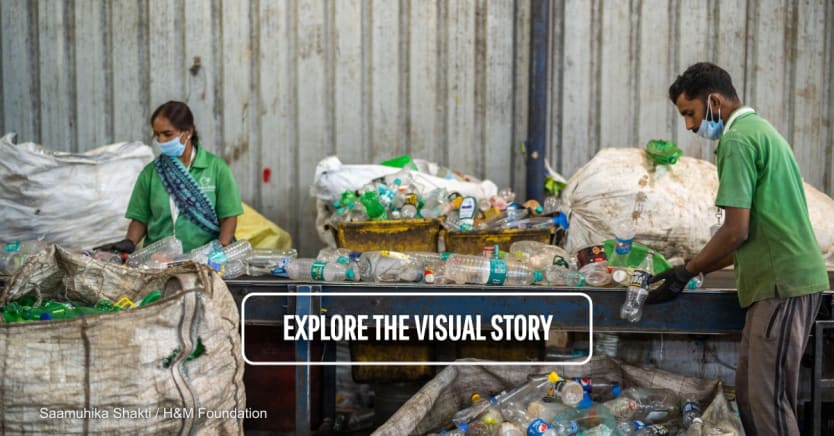
Kumudha is used to early starts. Formerly a waste picker, she would begin her day at 5 a.m., sorting through garbage in the streets and landfills of south Bengaluru, the largest city in Karnataka state, southern India, in the hope of recovering items that could be sold on to neighborhood scrap shops and recycling facilities.
The work was long and exhausting and she would often face harassment and discrimination. “If we went to collect the waste, the police would accuse us of theft. People would shoo us away saying, ‘they are waste pickers; they are unhygienic,’” she said.
There are an estimated 35,000 waste pickers working informally in Bengaluru, and up to 4 million across India. The majority have low levels of education and come from the lower castes of Indian society. “These are traditionally people who have come from outside the city,” said Akshay Soni from The/Nudge Institute, an Indian nonprofit focused on poverty alleviation and one of the members of the Saamuhika Shakti project, which aims to lift waste pickers out of poverty. “As countries urbanize, you move from rural India to urban India, you come into a city, but you're not skillful enough … hence, waste picking becomes a gateway occupation,” he said.
Every day in Bengaluru, waste pickers sift over 1,000 tons of recyclable material, which amounts to around a third of the city’s generated waste. But despite their invaluable role, they remain a marginalized and impoverished group, earning an average income of about 150-200 Indian rupees a day — the equivalent of just $2.71-$3.62.
